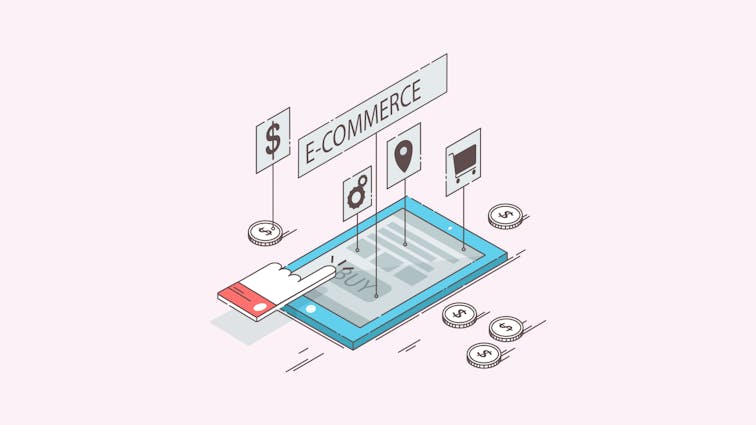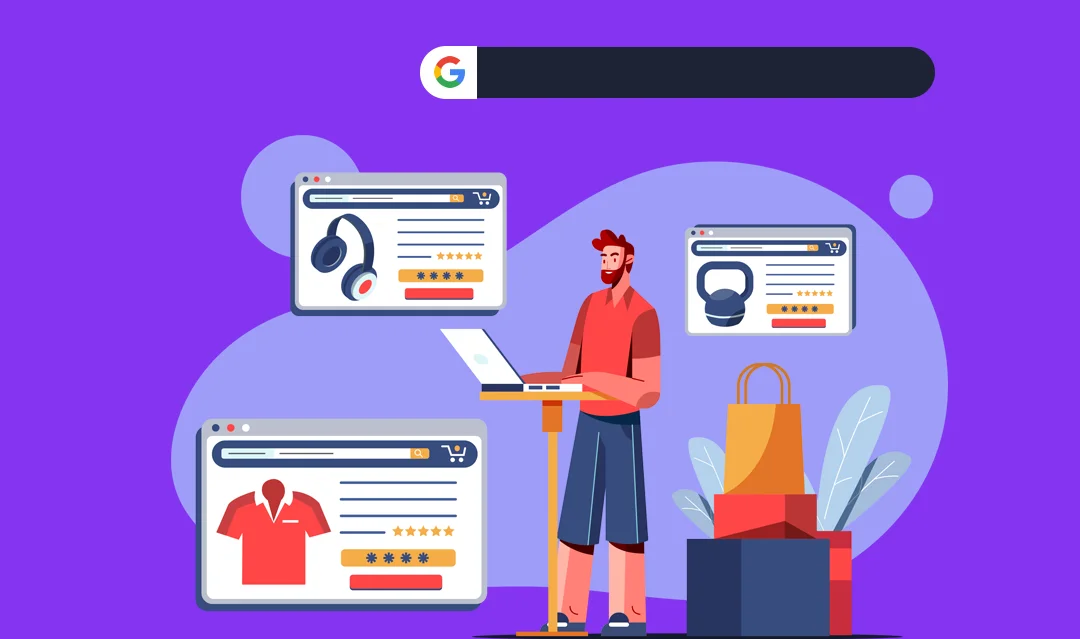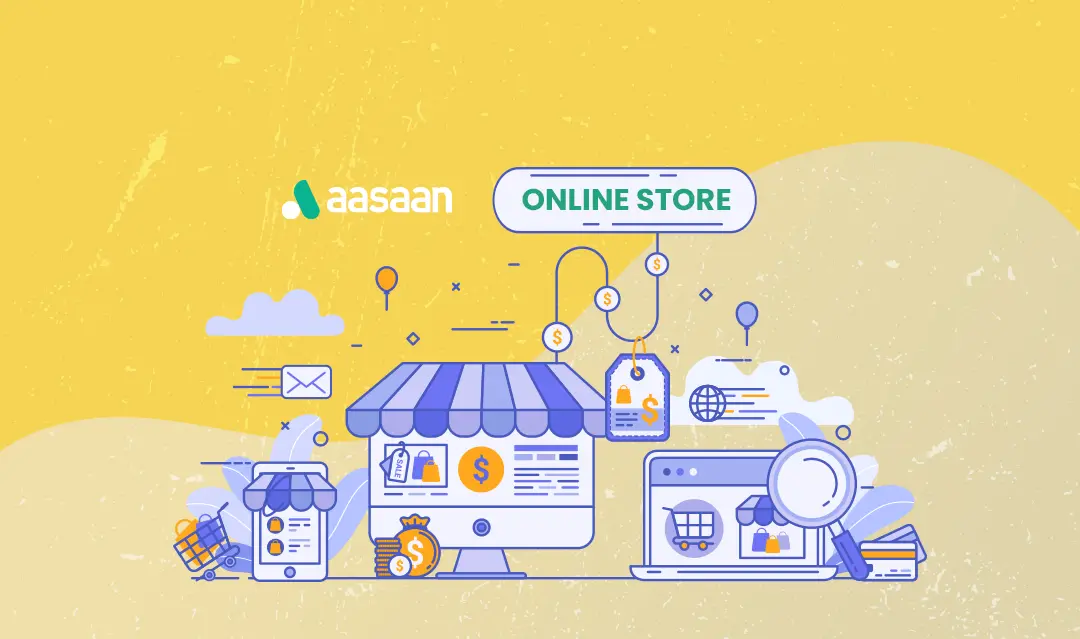
From Clicks to Cash: Can E-commerce Make You Rich?
Welcome to the world of e-commerce, a global phenomenon that’s transforming the way we buy and sell goods and services.
With the click of a button, we can order a product from halfway around the world, and have it delivered to our doorstep.
But beyond the convenience it offers, there’s a question that often comes up: Can e-commerce make you rich?
The allure of e-commerce is undeniable.
The idea of starting your own online store, selling products to people all over the world, and making money while you sleep is certainly appealing.
But is it really possible? Can e-commerce truly pave the way to wealth?
The Reality of E-commerce
Let’s debunk a common myth right off the bat: e-commerce is not a get-rich-quick scheme.
Like any other business, it requires hard work, dedication, and a sound strategy.
Sure, there are success stories of people making a fortune through their online stores, but these are often the result of years of effort, strategic planning, and continuous learning.
Take the story of Jeff Bezos, the founder of Amazon.
He didn’t become the richest man in the world overnight. Amazon started as an online bookstore in 1994, and it took years of expansion, diversification, and innovation for it to become the e-commerce giant it is today.
Or consider the story of Sophia Amoruso, the founder of Nasty Gal. She started her business by selling vintage clothes on eBay before launching her own website.
Her journey wasn’t always smooth - she faced numerous challenges and even filed for bankruptcy at one point. But she learned from her experiences, bounced back, and is now a successful entrepreneur with a net worth of millions.
These stories serve as a reminder that while e-commerce has the potential to make you rich, it’s not an easy or guaranteed path.
It requires a deep understanding of your market, a compelling product or service, a strong online presence, and the ability to adapt to the ever-changing digital landscape.
So, can e-commerce make you rich? Yes, it can.
But it requires more than just setting up an online store and waiting for the money to roll in.
It requires strategy, persistence, and a whole lot of hard work. But for those who are willing to put in the effort, the potential rewards are indeed promising.
The E-commerce Blueprint

So, you’re ready to dive into the world of e-commerce. But where do you start? Here’s a basic blueprint to guide you on your journey.
1. Choosing Your Niche: The Importance of Market Research
Before you set up your online store, you need to decide what you’re going to sell. This is where market research comes in.
By understanding the market, you can identify a niche that has potential for profitability.
Look for products that are in demand, but not overly saturated. Consider your own interests and expertise as well - it’s much easier to sell a product that you’re passionate about.
2. Setting Up Your Online Store: The Basics
Once you’ve chosen your niche, it’s time to set up your online store.
There are plenty of e-commerce platforms out there, like Aasaan, Shopify, WooCommerce, and BigCommerce, that make it easy to create a professional-looking store even if you’re not a tech whiz.
Your online store should be user-friendly, with clear product descriptions, high-quality images, and an easy checkout process.
3. Sourcing Products: Understanding Your Options
Next, you need to source your products. There are several ways to do this.
You could make the products yourself, buy them in bulk from a manufacturer, or use a dropshipping service, which means the supplier ships the products directly to the customer.
Each option has its pros and cons, so consider your resources, skills, and business model before making a decision.
The Road to E-commerce Success
Setting up your online store is just the beginning. Here’s how to pave your road to e-commerce success.
1. Marketing Your E-commerce Store: The Role of SEO and Social Media
To attract customers to your store, you need to make it visible. This is where marketing comes in.
Search Engine Optimization (SEO) can help your store rank higher in search engine results, making it easier for potential customers to find you.
Social media is another powerful marketing tool. By creating engaging content and building a community around your brand, you can attract and retain customers.
2. Customer Retention: Building Loyalty in the Digital Age
Attracting customers is important, but retaining them is even more so. Building customer loyalty can be a game-changer in e-commerce.
This can be achieved through excellent customer service, a loyalty rewards program, and regular communication through email newsletters or social media updates.
3. Scaling Your Business: The Art of Expansion
Once your e-commerce store is up and running, and you’re starting to see some success, it’s time to think about scaling.
This could mean expanding your product range, entering new markets, or leveraging advanced marketing strategies.
Remember, scaling should be a gradual process - growing too quickly can lead to logistical issues and compromise customer service.
In the world of e-commerce, there’s no one-size-fits-all approach to success. But with careful planning, strategic decision-making, and a customer-centric approach, you can increase your chances of building a profitable online store.
Can e-commerce make you rich? It’s certainly possible. But like any business venture, it requires hard work, dedication, and a sprinkle of entrepreneurial spirit.
Read More: 10 Easy Steps to Grow Your Small Business
The Challenges in E-commerce

While the world of e-commerce offers immense opportunities, it’s not without its challenges. Understanding these obstacles is the first step towards overcoming them.
1. The Risks and Obstacles in E-commerce: A Reality Check
E-commerce, like any business, comes with its share of risks. These can range from technical issues like website downtime and security breaches, to logistical challenges like shipping and inventory management.
There’s also the risk of low conversion rates if your website doesn’t provide a seamless user experience.
It’s important to anticipate these challenges and have a plan in place to address them.
2. Competition in E-commerce: Surviving in a Ruthless Market
The e-commerce space is incredibly competitive. With millions of online stores vying for customers’ attention, standing out from the crowd can be tough.
To survive in this ruthless market, you need to differentiate your store. This could be through unique products, exceptional customer service, or a compelling brand story.
The Future of E-commerce
E-commerce is a dynamic field, constantly evolving with technological advancements and changing consumer behaviors. To stay ahead, you need to keep an eye on the future.
1. Emerging Trends: Staying Ahead in the E-commerce Game
From the rise of mobile commerce to the growing popularity of eco-friendly products, staying abreast of emerging trends can give you a competitive edge.
For instance, incorporating augmented reality into your online store could enhance the shopping experience and boost sales.
2. Adapting to Changes: The Key to Long-Term Success
The only constant in e-commerce is change. Whether it’s a new social media platform, a change in search engine algorithms, or a shift in consumer preferences, being adaptable is crucial.
This means regularly reviewing and updating your business strategy, and being open to new ideas and technologies.
The Financial Aspect of Ecommerce

E-commerce can be a lucrative venture, but it’s important to understand the financial implications before diving in.
1. E-commerce as a Side Hustle vs. Full-Time Job: The Pros and Cons
Many people start their e-commerce journey as a side hustle while maintaining a full-time job.
This approach has its advantages - it provides a safety net and allows you to test the waters without taking on too much risk.
However, it can also be challenging to balance the demands of a full-time job with the needs of a growing online store.
On the other hand, running an e-commerce store as a full-time job allows you to fully commit to the venture. But it also means giving up a steady paycheck and taking on more financial risk.
2. Managing Your E-commerce Earnings: A Guide to Financial Planning
Once your e-commerce store starts making money, it’s important to manage your earnings wisely.
This means setting aside money for taxes, reinvesting in your business, and saving for the future.
A solid financial plan can help ensure the sustainability of your business and your personal financial health.
3. Sustainability: Ensuring Your E-commerce Business Thrives in the Long Run
Sustainability is key in e-commerce. This means not only financial sustainability, but also environmental and social sustainability.
From choosing eco-friendly packaging to treating your employees fairly, sustainable practices can enhance your brand image and contribute to long-term success.
Conclusion:
The Verdict: Can E-commerce Truly Make You Rich?
So, can e-commerce truly make you rich? The answer is yes, it can - but it’s not a guarantee.
Success in e-commerce requires hard work, strategic planning, and a bit of luck. But for those who are willing to put in the effort, the potential rewards are significant.
Final Thoughts: Is E-commerce the Right Path for You?
Deciding whether to venture into e-commerce is a personal decision.
It depends on your goals, your risk tolerance, and your willingness to embrace the challenges and uncertainties of entrepreneurship.
But if you’re driven, adaptable, and ready to put in the work, e-commerce can be a rewarding path to financial freedom.
Frequently Asked Questions
1. Can you really make money with e-commerce?
Yes, you can make money with e-commerce. However, like any business, it requires a strategic approach, hard work, and time to become profitable.
2. How long does it take to become profitable in e-commerce?
The timeline varies, but most e-commerce businesses can expect to start seeing profits within the first 1-2 years, provided they have a solid business strategy and execute it effectively.
3. What are the most common mistakes new e-commerce entrepreneurs make?
Common mistakes include not conducting thorough market research, poor website design, inadequate customer service, and not investing enough in marketing and SEO.
4. How much initial investment is needed to start an e-commerce business?
The initial investment can vary widely depending on the business model, but you can start a basic e-commerce store for as little as a few hundred dollars.
5. Can I run an e-commerce business from anywhere in the world?
Yes, one of the advantages of e-commerce is that it can be run from anywhere with an internet connection, making it a popular choice for digital nomads.








